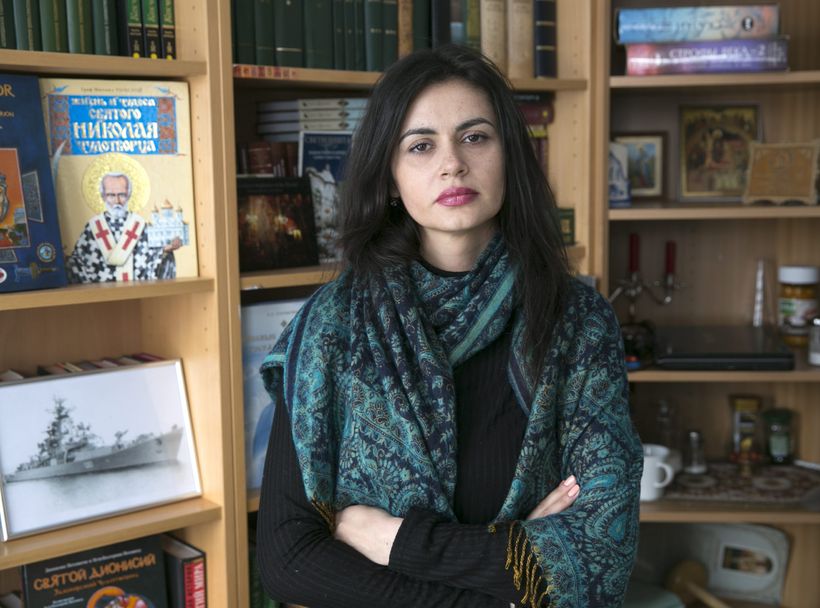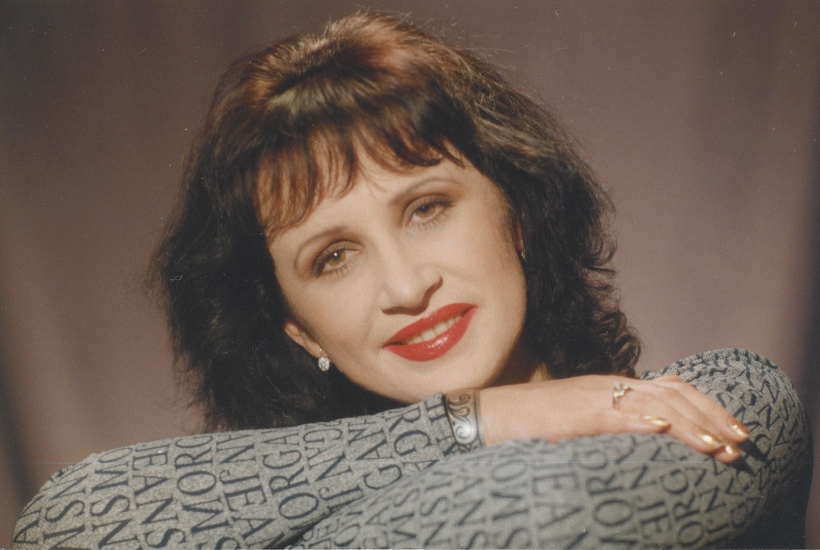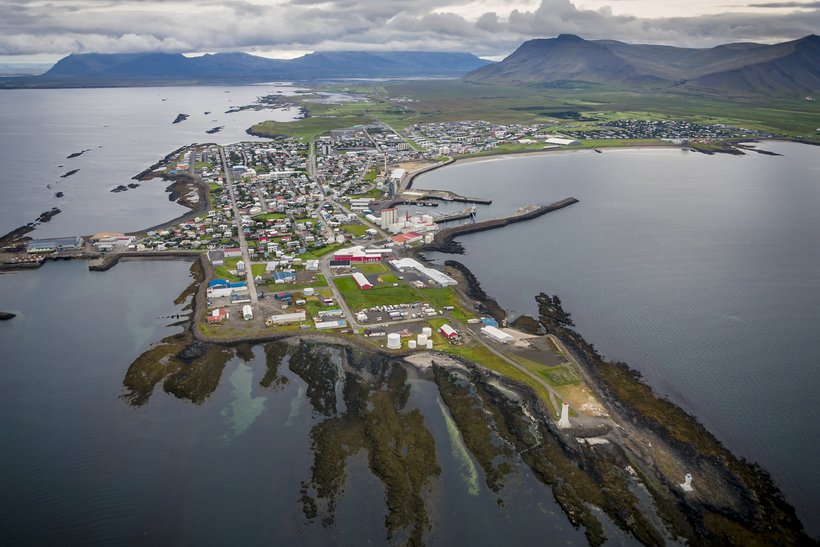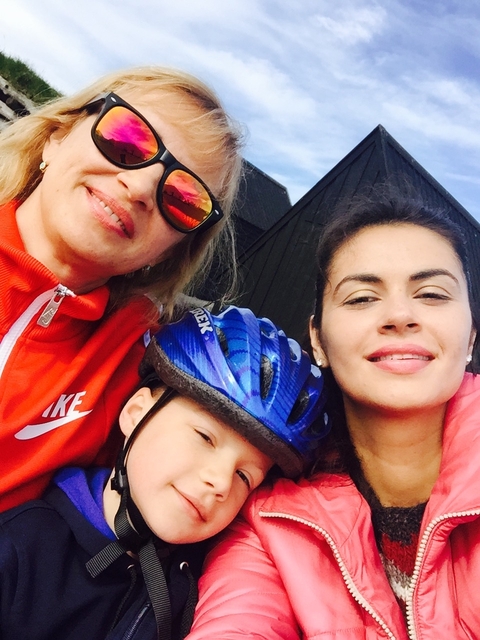"I don‘t know why he took her from me"
In the evening of April 12th Nadezda Edda Tarasova and her daughter Julia spoke on the phone like they did most nights. They were very close, even if one of them lived in the small Icelandic town of Akranes and the other in Russia, and Nadezda had just that evening been looking into flights to visit her daugher, mother and grandchild. The conversation, about a possible family vacation by the Black Sea, was joyful and full of warmth as always.
"She may have been my mother but she was also the kindest person in the world," Julia says. "She was always smiling, always in a good mood."
Julia describes the next phonecall she received from Iceland as the worst she has ever had to answer. Her mother had been found dead in her bed. The police believe she was shot by her husband, Guðmundur Valur Óskarsson, who then took his own life in the couple‘s living room.
"I just screamed. My neighbours came running because I was screaming so much and I kept screaming until a doctor gave me something. I don‘t remember what happened next. The same thing happened when I came here. I still don‘t believe it."
Julia and I are sitting in an old couch on the second floor of the Russian orthodox church on Öldugata in central Reykjavík with a small pile of her mother‘s photographs between us. She speaks in a very low voice, almost whispers, and her eyes seem a little wet. Even so, she only gets visibly upset once during our talk, when speaking of how her seven year old son had called Guðmundur Valur his grandfather his whole life. She catches her breath and looks away, but even if her lip trembles for a moment she doesn‘t let her emotions take control. Not now.
She is very clear on her motives for the interview. She doesn‘t see any reason to dive into details regarding the murder itself or to throw around blame and anger. She wants to speak about her mother who she loved so dearly, remember her publicly in the hope that her story can save other women.
Had asked for divorce
Nadezda divorced Julia‘s father in 1995, when Julia was 13 years old. She met Guðmundur through a mutual friends shortly after the turn of the millenium and soon moved to Iceland to marry him.
Julia visited Nadezda in Iceland frequently and even lived here her self for a while. Her grandmother, Nadezda‘s mother, also lived with her daugther for some time and Julia‘s son, Edward, has Icelandic citizenship. Julia says there was no escaping her rich ties to the country. She and her mother were constantly planning ways to meet and how they could live together again in the future.
"My mum and I were very close. When I was a child my friends always envied my relationship with her, she was more like a friend or sister. The ocean between us was nothing. We constantly communicated about everything; cooking, my sons schooling, everything!"
Therefore that phonecall on April 12th wasn‘t unusual at all, even if the thought of a family vacation and reunion was exciting. However, an unusual conversation between Nadezda and her husband had occurred only three weeks prior, where she told him she wanted a divorce.
Guðmundur had been struggling with illness for many years and had told Nadezda that if she helped take care of him he would agree to the divorce. Julia says her mother took good care of her husband, but never got the divorce she wanted.
There is no way to know for certain if her wish for seperation was the reason for Guðmundur‘s horrible act and frankly, Julia doesn‘t want to speculate.
"I don‘t know if that is the reason or if it was because she was going to Russia. He was sick and people tried taking care of him. The doctor gave him some presciptions and his situation was known because he spoke to priests and social workers, but I don‘t know what he told them. I know nothing really. I have lost a part of my life that I don‘t know how to live without. I don‘t know why he took her from me when he knew how much I loved her."
"She felt pity"
This wasn‘t the first time Nadezda had decided to leave Guðmundur. In 2008 she moved out of their home and into an apartment the Red Cross supplied her with.
"They lived separately for a while but then his son died in a accident. He was lonely and asked her for support and help. She felt pity for him and moved back in to help him. He promised he would change. Ofcourse I felt he abused her emotionally. She had more kindness and goodness than any other Icelandic woman could have shown him. She felt pity. He promised to change."
Julia says she wants to tell her mother's story to prevent other women from facing the same fate. She wants to encourage people to concern themselves with others and says it is essential that neighbours and coworkers speak up when the can feel when something is not quite right.
"When my mother didn‘t show up for work she received numerous phone calls. If I don‘t show up for work I receive two or three calls but now every ten minutes and noone would call the police in only an hour. The same goes for you I suppose. People can oversleep, be sick... stuff happens."
Julia thinks it‘s likely that Nedezda‘s coworkers had noticed that she was upset and possibly known about her troubles at home. Even if she doesn't blame them she can‘t help but wonder if somebody could have stepped in. She also wonders about the murder weapon. According to the police, Guðmundur had two registered firearmsbut the authorities would not confirm that the gun used to kill Nadezda was registered.
"How could I blame anyone? I can‘t. But somehow there must be a way this could have been prevented."
Foreign women lack the support Icelandic women have
Foreign women in Iceland are more likely to be the victims of domestic violence than Icelandic women. Research conducted by the Women‘s Shelter Organization in Iceland in 2009 found that there was big difference between women‘s position in Iceland in regards to where they came from.
Women from countries outside of the EEA were in some cases depentent on their spouses for residence permits, which made them more vulnerable to domestic violence. Difficulties regarding language and lack of local knowledge also contributed to isolation and made them easier to abuse. This is something Julia can relate to in some ways. She agrees that women from other countries don‘t have the same support system that Icelandic women have but points out that her mother got support when she asked for it back in 2008.
"When she decided to leave her husband, many women helped her, Icelandic women. She spoke Icelandic well and assimilated to Icelandic culture. She loved Iceland and in her last years she considered herself more Icelandic than Russian."
Julia makes clear that even if her mother didn‘t have family here she had friends, not only in the Russian community but also Icelanders. She insists for her mother not to be seen as a faceless foreigner, a number in a system or in terms of her relationship with Guðmundur Valur, but as a beloved mother, grandmother and friend.
"The only thing that matters is that my lovely mum is dead. How their relationship was, what mood he was in or why he did what he did doesn‘t matter. I don't want any gossip. What matters is that we try to prevent this from happening again."
Doesn‘t make up for the loss
Julia is very grateful for all the help that she received when planning her mother's funeral and the kindness she has been shown since her mothers death. Among others she counts the staff and congregation of the Russian orthodox church, the Red Cross, Nadezda's coworkers at Grundarskóli, the school‘s principal, her friends and locals at Akranes.
She is thankful to the mayor and the municipality of Akranes, as well as her mother‘s labour union, who together paid all funeral costs. She also wants to convey her gratefulness to the staff of the Icelandic embassy in Russia who provided her with a Visa on very short notice.
"I know there was a collection for us. Rather than all the money in the world, rather than all of Iceland, I would want the person I loved the most back to me. I don‘t want to think about money but I could not get through all of this with out all this help."
Now comes the time where issues of Nadezda's and Guðmundur's inheritance has to be figured out. Julia is her mother‘s only child but Guðmundur had four. Julia says it is hard to work out how to secure her right, as she is not familiar with the legal environment at all.
"I don‘t doubt that the laws will protect me. I believe Iceland is a fair country and that the result will be justice for my mother. I only want justice. I don‘t want anything that doesn‘t belong to me. I don‘t even know how to seek compensation as nothing can make up for my loss."





/frimg/1/38/77/1387784.jpg)





